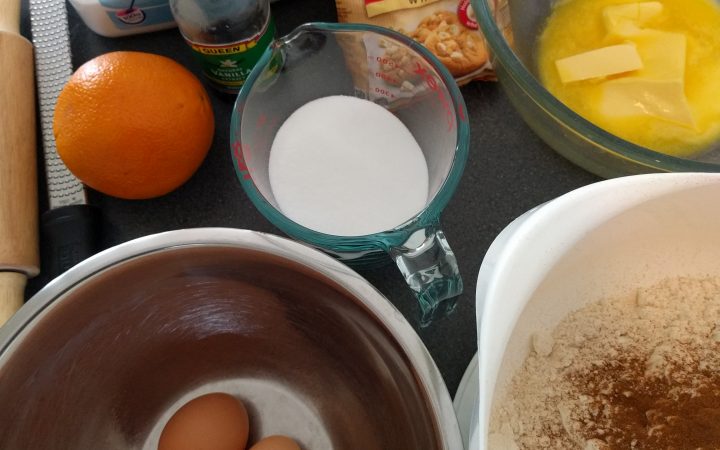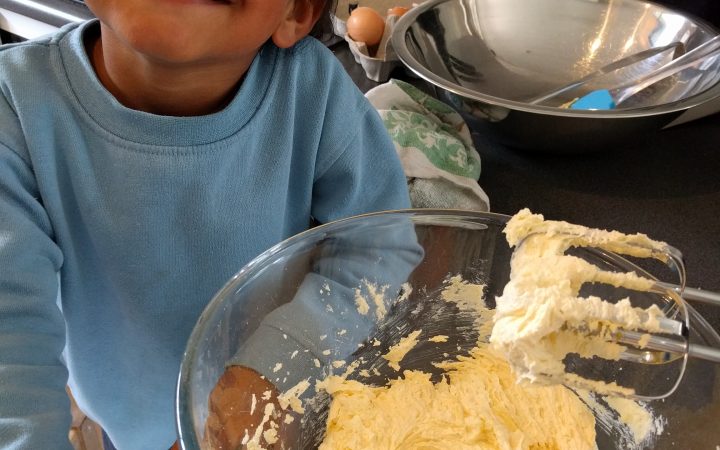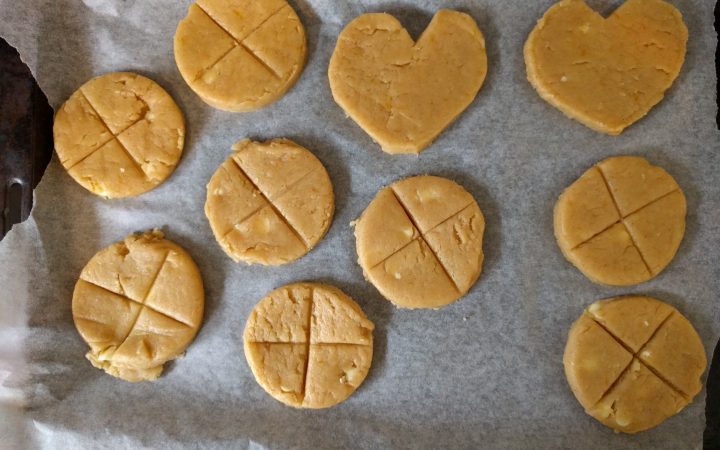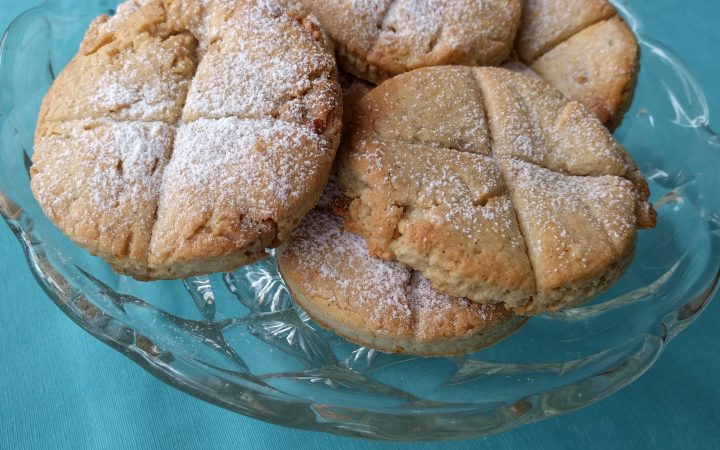All Hallows’ Eve Soul Cakes
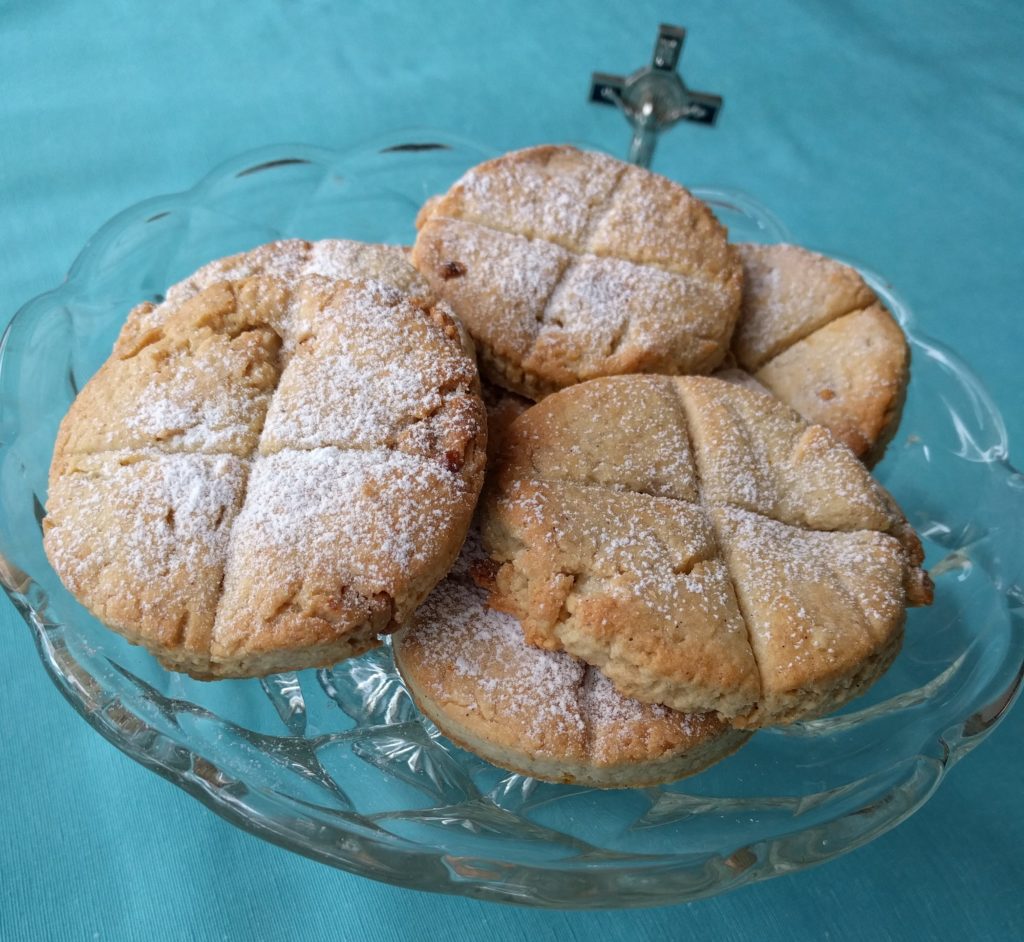
A soul cake is a small round cake made for All Souls’ Day (the 2nd November), according to a centuries-old tradition from Britain and Ireland.
The cakes were given out by the more well-do-to of a parish to the poor who would go door to door ‘begging for souls’. In exchange for cakes ‘soulers’ would sing psalms and say prayers for the giver’s deceased loved ones. This tradition apparently evolved into today’s ‘trick or treating’ on Halloween.
Some versions of this recipe are more like a soft bun, others a biscuit, and others kind of in-between, like a scone or rock cake.
Our version is flavoured with orange, choc chips and vanilla. They are awesome eaten as a soft, cakey-biscuit straight from the oven as they will harden a lot within a day. But they make a very tasty cookie for kids to nibble on or adults to dunk into a cup of tea for up to three days after baking.
Soul cake talking points
We can use soul cakes to open up the meaning of All Hallow’s Eve and the subsequent feasts of All Saints and all Souls on November 1 and 2.
For younger children: Use white chocolate chips – these represent souls. Say a prayer for a person in purgatory for each chocolate chip you get in your soul cake. Alternatively, say a quick prayer to a favourite saint for each choc chip you find!
Soul Cakes
Makes around 12
Utensils
- 1 large mixing bowl
- 1 rolling pin
- 1 cookie cutter or a glass around 4-5 cm wide
- Measuring cups and spoons
- 1 large spoon for mixing
- Spatula
- 2 baking trays
- Baking paper
Ingredients
- 200 grams unsalted butter, softened
- 200 grams castor sugar
- 3 egg yolks
- 1 teaspoon vanilla essence or extract
- 450 grams plain flour
- ¼ cup milk
- 2 teaspoons cinnamon
- Zest from 1 orange
- ½ cup white choc chips
Method
Step 1
Preheat oven to 180°C and line two baking trays with baking paper.
Use an electric mixer to cream the butter and sugar until the mixture is are pale and creamy. Add the egg yolks one at time, and the vanilla, and beat to combine.
Step 2
Add the flour, cinnamon and milk and mix to combine with a large spoon, or use the dough hooks on your mixer, until a soft dough forms.
Step 3
Turn the dough onto a lightly floured surface and roll it out to a depth of around 1.5cm. Cut out the shapes using the rim of a glass or a cookie cutter. Use up all the dough by gathering and rolling out the off-cuts.
Step 4
Place the soul cakes on the trays, and using the back of a knife, mark a cross on each one. Bake them for around 15-20 minutes or until they’re a light golden colour. Transfer to a wire rack to cool.
Step 5
Enjoy! These soul cakes are best when they’re warm with a hot chocolate or cup of tea
